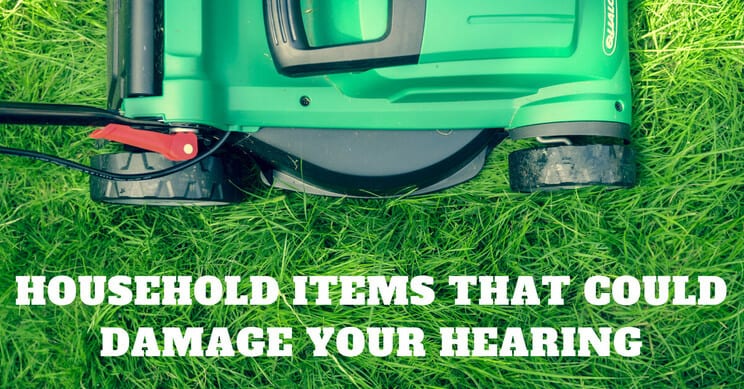
- A Step-by-Step Look at How Hearing Aids Make Sounds Sharper - May 5, 2025
- Causes of Conductive Hearing Loss? - April 27, 2025
- Can Treating Hearing Loss Reduce Stress? - April 15, 2025
When it comes to avoiding loud noises, most of us can recognize sound hazards in the world, things like airplane noise, traffic, factory sounds, fireworks, loud crowds and live concerts. We may have a harder time however, recognizing the hearing threats that live a little closer to home. Household items and appliances, while designed for home use, can still contribute to hearing problems. Here are a few of the worst offenders:
Stereos and Personal Devices
Reducing the noise you experience in your home can start with the things that have direct volume controls. A personal MP3 player is capable of blasting your ear with 110 decibels of noise – louder than an average live music concert. With the development of home theater systems and stereo equipment, many people have the power to deliver punishing noise to their ears – all in the name of leisure!
Remember, modern sound equipment can deliver rich, clear and nuanced sound without posing a risk to your hearing. Keep your volume settings at halfway and discourage listening through headphones which can distract people from just how loud they are listening.
Lawn Equipment
Lawn gear makes home maintenance easier, but it doesn’t do our hearing many favors. Lawn mowers, leaf and snow blowers, chainsaws and pruners all operate at volumes in excess of 85 dB, the threshold commonly used to start monitoring damaging noise. If you work with lawn equipment every day or for long periods of time, invest in hearing protection as the long term repercussions of noise exposure are usually permanent hearing damage and hearing loss.
Hair Dryers
Your hair dryer may be fundamental to helping you craft the hair styles you love to wear, but it also may be damaging your ears with blasting noise and air. Blow dryers typically register between 80 and 90 decibels when in operation meaning that delivering dangerously loud sound directly to your ears may be just part of your daily routine. Try sporting hairstyles that require less upkeep, or minimize your styling time. If your hair routine can’t be altered, start keeping simple earplugs in your bathroom you can wear before you begin blow drying.
Power Tools
Even a basic home maintenance project often requires some power tools to complete. Drills, saws and sanders as well as other power equipment all operate with dangerously loud noise levels – often for extended periods of time. Power tools run loud, and then get even louder when they are doing their jobs – cutting through wood or tile, blasting nails into boards, screwing a new window frame into place. While these noises deliver a sense of accomplishment, they are, across the board, causing lasting damage to your hearing, commonly hitting volume levels above 100dB. When you put together a checklist for a home repair project, always put hearing protection into the mix and make sure you prioritize your hearing as a project safety concern.
Cigarettes
Okay, cigarettes aren’t related to noise-induced hearing damage, but smoking cigarettes and even secondhand smoke have been shown to contribute to hearing damage. Smoking restricts your blood vessels, tiny pathways that deliver blood and oxygen throughout your body. When blood vessels are blocked from performing their job, it can starve the tiny hair cells that our inner ear uses to detect sound. Once hair cells are damaged they cannot be repaired, so starving them has permanent repercussions on your hearing.
Blenders and Food Processors
There’s nothing like preparing a home cooked meal, yet the kitchen holds some concerns for your hearing as well. Blenders, juicers and food processors all use powerful motors to create quick (and delicious) blending and liquefying. While these appliances make cooking easier, they aren’t easy on the ears, often operating at hazardous noise levels.
Use your kitchen appliances for short periods of time only. If a recipe calls for food to be blended for an extended period of time, step away from the appliance if you can to give your ears some relief.
Vacuum Cleaners
Vacuums have come a long way in terms of noise reduction, but many models still pose a threat to your hearing, especially if used often and for long periods of time. When shopping for a new vacuum, look for quiet options that give your hearing a break.
Visit Us at Hearing Aid Specialists of the Central Coast
If you have noticed changes in your hearing abilities, it is important to take a hearing test. Schedule an appointment with us at Hearing Aid Specialists of the Central Coast today.
